Climate-Resilient Cooperatives to Green SMEs

UNDP in collaboration with The Daily Star organised a roundtable titled 'Climate-Resilient Cooperatives to Green SMEs: Enabling Resilience for Climate Vulnerable Women' on November 12, 2024. Here we publish a summary of the discussion.
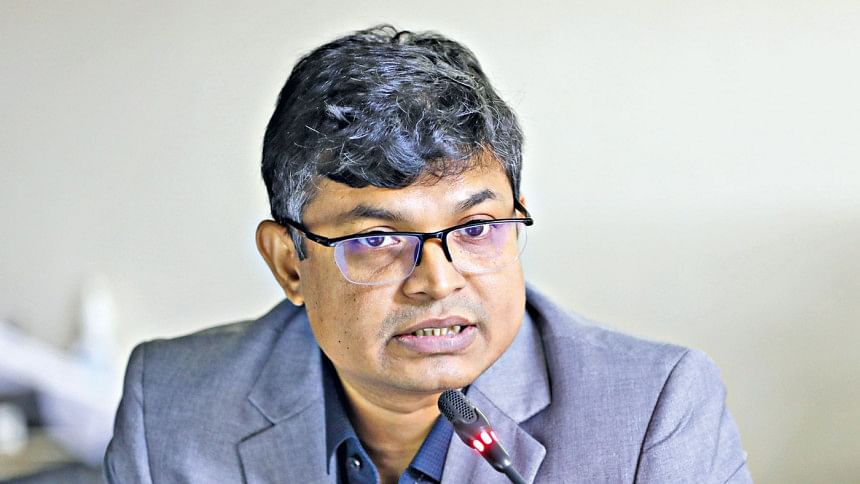
A K M Azad Rahman, Project Coordinator, LoGIC, UNDP (Key-Note Speaker)
The LoGIC Project is a collaborative initiative of the Embassy of Sweden, the Embassy of Denmark, UNDP Bangladesh, and UNCDF, implemented by the Local Government Division of the Government of Bangladesh (GoB). The project provides support to 500,000 vulnerable households across nine districts and 94 Union Parishads, as well as 29 Upazila Parishads, local communities, civil society organisations (CSOs), local institutions, and government officials. Among these, 42,500 individuals—99% of them are women—have received direct assistance, with a primary focus on climate-vulnerable regions.
The journey began with efforts to reduce household vulnerabilities. Over time, we have supported beneficiaries in forming small groups to establish green businesses. These groups are now generating profits, confidently managing their climate adaptive livelihood, and making small-scale investments within their communities. To scale up these initiatives into medium-sized enterprises, a collaborative approach to pooling resources is crucial. Recognising the importance of sustainability after the project concludes, we identified the need for a legal framework, and cooperatives emerged as the most suitable model.
Cooperatives have a proven track record in empowering vulnerable communities, building climate resilience, and enabling women to establish adaptive green businesses. Following sustained advocacy, the cooperatives division approved a new category for climate-vulnerable cooperatives. These cooperatives pool resources from members, including women shareholders, to invest in green small and medium enterprises (SMEs), thereby creating opportunities for green businesses and ensuring sustainability through a transformative approach.
Within the LoGIC Project, 247 cooperatives have been established, of which 99 have already invested in green businesses. Among these, 14 cooperatives are in a revenue-generation cycle, collectively earning around BDT 500,000, demonstrating promising momentum.
The portfolio of green SMEs includes eco-friendly agricultural farms, climate-smart agriculture, handicrafts, sanitation product businesses, vermicompost production, solar-powered poultry incubators, honey collection and sales, agro-feed production using local raw materials, plastic recycling factories, natural and safe dry fish processing, commercial aquaculture, coconut oil processing, coco peat production, Areca leaf-based eco-products, bioflock fish culture, and eco-friendly bag manufacturing.
LoGIC project introduced a software system regulated by the cooperatives division and operated by young people from beneficiary communities. This system ensures transparency by sending automatic SMS notifications to all members whenever funds are withdrawn, fostering trust within the cooperatives.
Despite these advancements, challenges persist. Transitioning from informal groups to cooperatives and then to green SMEs is complex. Establishing sustainable enterprises is a long-term endeavour, often requiring five to ten years to gauge success. Additionally, innovative business models can be difficult to adopt, and remote locations often hinder market linkages.
Engaging youth in these enterprises can be transformative, as it builds capacity and strengthens market linkages with organisations such as Amal Foundation and iGrow. Collaboration with government line departments is vital for technical support, and risk insurance is necessary to manage high-risk areas. Ultimately, the sustainability of cooperatives hinges on innovation, effective risk management, community cooperation, and access to grants and larger funding sources.
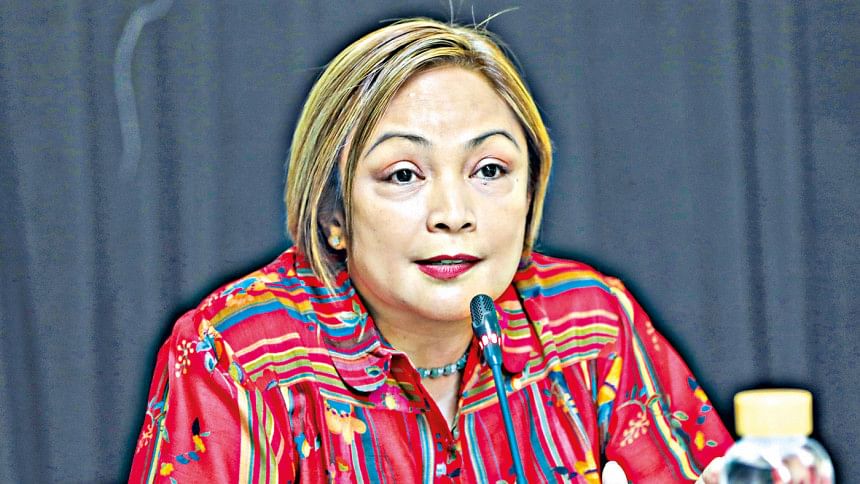
Nayoka Martinez Bäckström, First Secretary, Embassy of Sweden
Since 2016, we have been actively involved in the LoGIC project, which has had a transformative impact on both systems and individuals, particularly on vulnerable women. Many of these women are now empowered to make informed economic decisions—a cornerstone of the LoGIC resilience model. Rather than prescribing solutions, the project enables women to find out their own options, whether in agriculture or market access, based on their unique circumstances.
A key recommendation is to connect these women with other government sectors, such as the Ministry of Agriculture or Fisheries, which are developing climate-resilient products. This linkage will provide women access to new technologies and enable them to adapt to evolving conditions. Building strong relationships with these actors is essential to ensure that women can continue making informed choices even after the project concludes.
Additionally, categorising SMEs and cooperatives into appropriate classifications is critical, as lending to these entities involves varying levels of risk assessment. Learning from global best practices, such as those from Kenya, can guide necessary policy and regulatory reforms. With regulatory support, women-led enterprises, which are already investing in land and infrastructure, can expand and seize new opportunities.
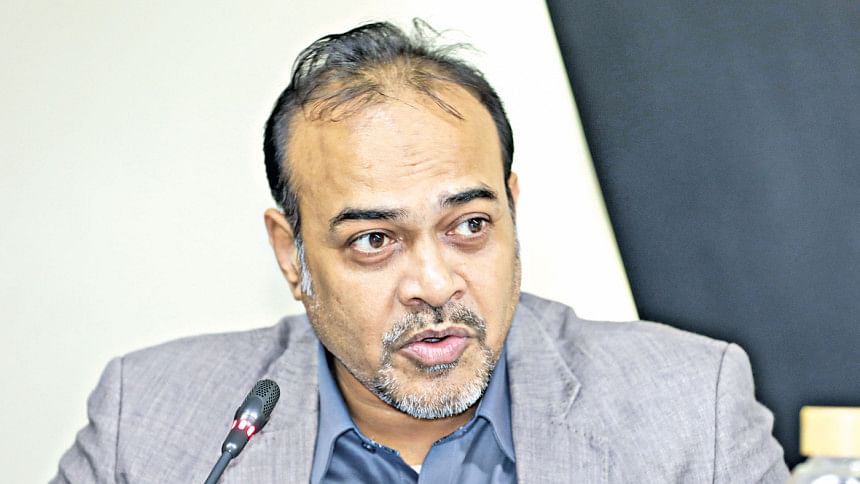
Syed Matiul Ahsan, Programme Adviser/Development, Embassy of Denmark
While discussing financing, it is essential to identify potential grantees. LoGIC has achieved remarkable progress in localising funds and empowering women, which is commendable.
Defining clear criteria for what qualifies as a green SME or a green product is crucial. Equally important is developing a roadmap for post-project support mechanisms to sustain these initiatives over the long term. Collaboration with the government, private sector, and other stakeholders will be key to achieving this sustainability.
Maintaining market access and leveraging technological advancements are critical for the growth and resilience of these enterprises. Creating an online platform for SMEs to market their products could be transformative.
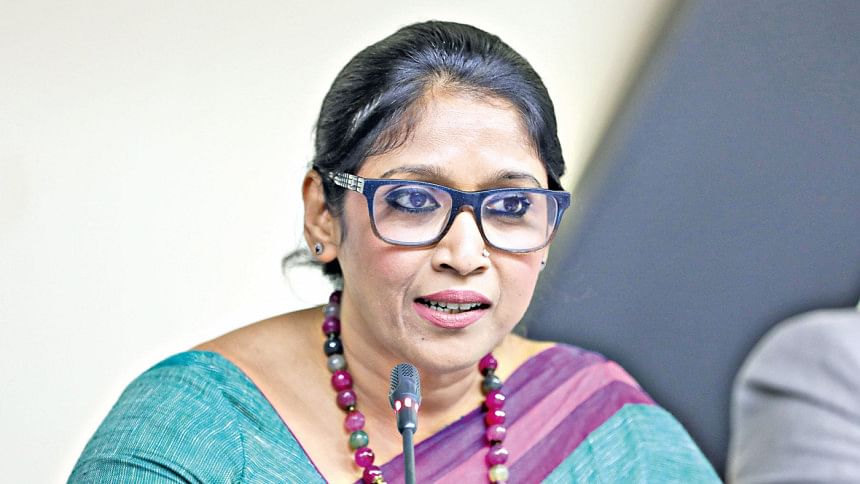
Dr. Tania Haque, Professor, Department of Women & Gender Studies, Dhaka University
Green SMEs offer a promising solution to address the climate crisis while supporting vulnerable populations, especially women. However, effectively implementing this solution requires careful preparation and nuanced strategies.
Comparative analysis shows that women are disproportionately vulnerable to climate impacts, yet project designs often oversimplify their needs. It is crucial to recognise that women are not a homogenous group. Multiple variables and their unique circumstances must be considered.
. While empowering women through income-generating opportunities is essential, it is equally important to address the double burden they face in balancing work and household responsibilities. Time poverty is a significant challenge that must be accounted for in project design. Furthermore, creating a gender-neutral market system is essential to ensure equal access and opportunities for women.
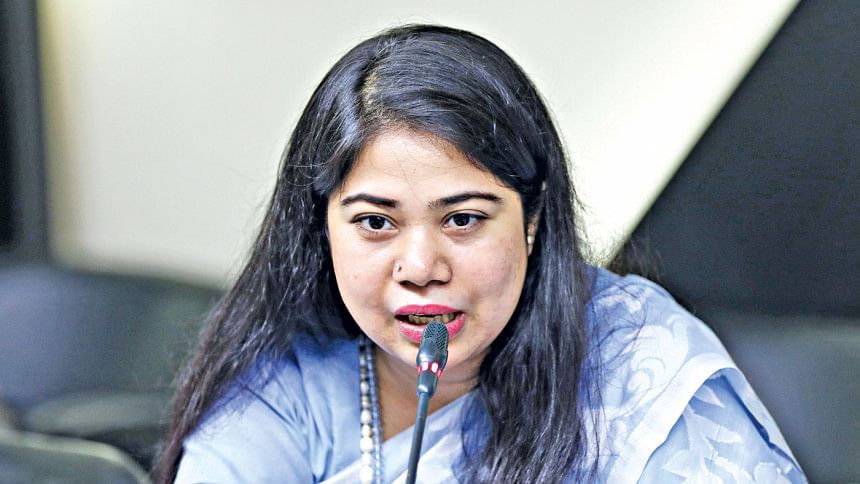
Esrat Karim Eve, Founder, Amal Foundtaion
We have closely worked with beneficiaries of the LoGIC project the positive changes within these communities are truly remarkable.
Market linkage is critical for ensuring sustainability of the positive changes. A significant challenge we have observed is the high logistics costs in coastal areas, where farmers face inflated prices due to the involvement of multiple middlemen. Addressing this issue will require better coordination among organisations, businesses, and cooperatives to establish a more efficient market system.
It is crucial for the project to continue thriving organically after external support. This entails creating sustainable systems, such as circular economic chains, and empowering local communities to sustain their progress independently. I urge all colleagues to contribute their expertise to ensure the long-term success of these initiatives.
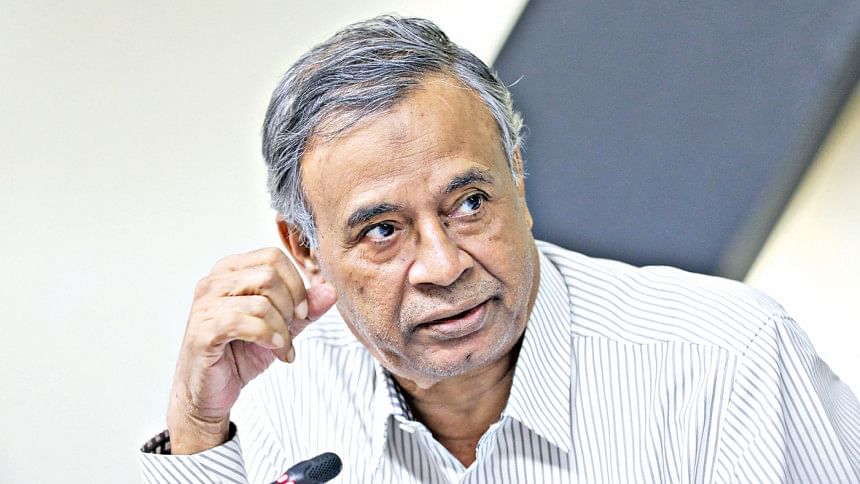
M Khurshed Alam Ph.D (Sociology), Chairman, Bangladesh Institute of Social Research (BISR)
The LoGIC project has made significant strides, particularly in securing government approval for the cooperative model, despite the strict compliance requirements imposed by the Department of Cooperatives. The collapse of many cooperatives due to regulatory pressures underscores the need for policy revisions that are more practical, field-oriented, and supportive of cooperative sustainability.
A critical issue is the lack of insurance for cooperative members, especially women, who often juggle multiple responsibilities. Identifying which agencies—such as the Department of Cooperatives or the Ministry of Women and Children Affairs—should spearhead these efforts is vital for providing institutional backing.
For green SMEs, there remains confusion over what qualifies as "green," making it essential to establish clear criteria. Any cooperative initiative must also align with local realities, as on-the-ground challenges often hinder the pursuit of green SME activities. Strengthening market linkages and connecting cooperatives with Upazila-level associations can bolster resilience.
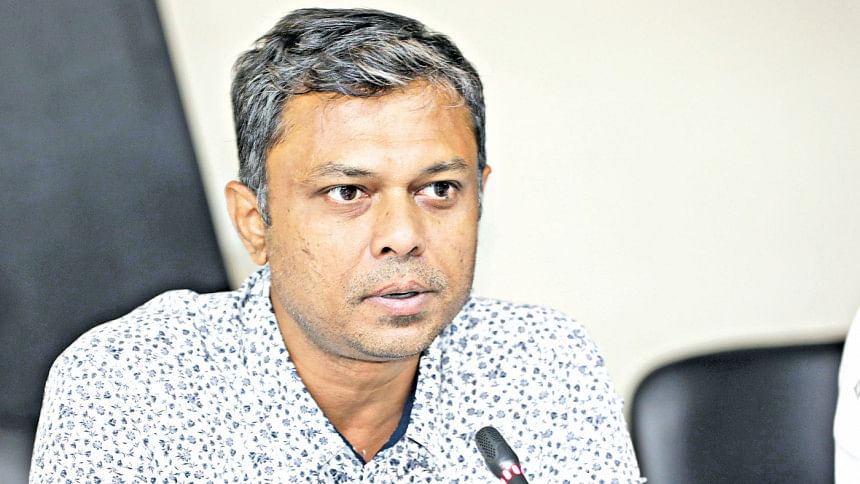
M. Parvez Kaosar Sarkar, AGM (Deputy Head of SME Department), Bangladesh Krishi Bank
At Bangladesh Krishi Bank, we offer green financing support under Bangladesh Bank's packages and operate our own SME system. However, a basic legal framework is necessary to ensure that the social segments we aim to support, particularly those from lower socio-economic strata, receive adequate assistance.
As a financial institution, our primary product is capital, and we need assurance on how borrowers will repay their loans. Without the ability to market their products effectively, borrowers may struggle to generate returns. Insurance plays a vital role in mitigating risks, helping vulnerable groups sustain and grow their businesses. Sharing risks through market assurance and supportive facilities would enable us to confidently finance these enterprises.
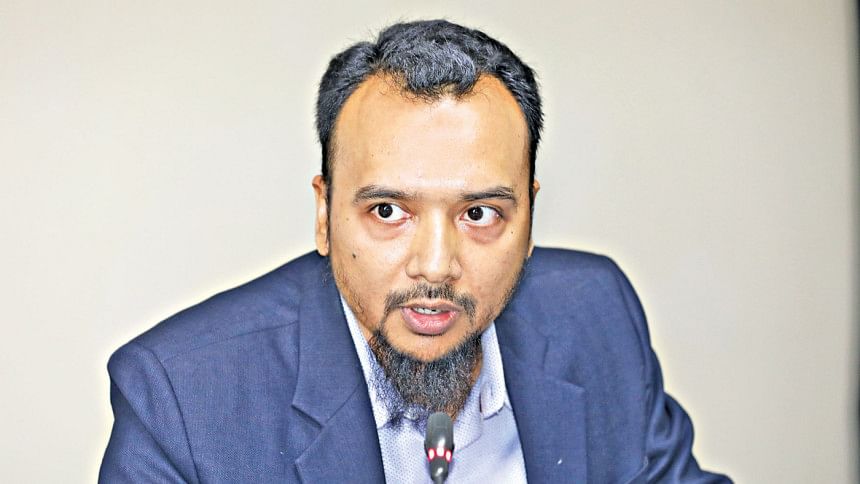
Shakhawat Hossan, Joint Director, Sustainable Finance Department, Bangladesh Bank
Bangladesh Bank has made significant strides in promoting sustainable finance and identifying green projects. A sustainable finance policy introduced in 2020 and updated in 2023 outlines support for green SMEs under three pillars: inclusive financing, climate resilience, and transitioning to a low-carbon economy. ESG guidelines further require all loans to comply with an Environmental, Social, and Governance (ESG) checklist to ensure low-risk, green financing.
Currently, the banking sector's sustainable finance portfolio stands at BDT 4,000 billion, including BDT 3,000 billion for SMEs and BDT 800 billion for green SMEs. However, challenges persist, including limited stakeholder awareness, the high cost of sustainable technology, and an insufficient certification infrastructure.
Since 2011, Bangladesh Bank has addressed these challenges by establishing sustainable finance desks and promoting women-centric lending. Initiatives include issuing circulars on climate-related disclosures aligned with IFRS standards and the Climate Vulnerability Index (CVI). Banks are also required to report semi-annually on climate risks, with a focus on vulnerable areas.
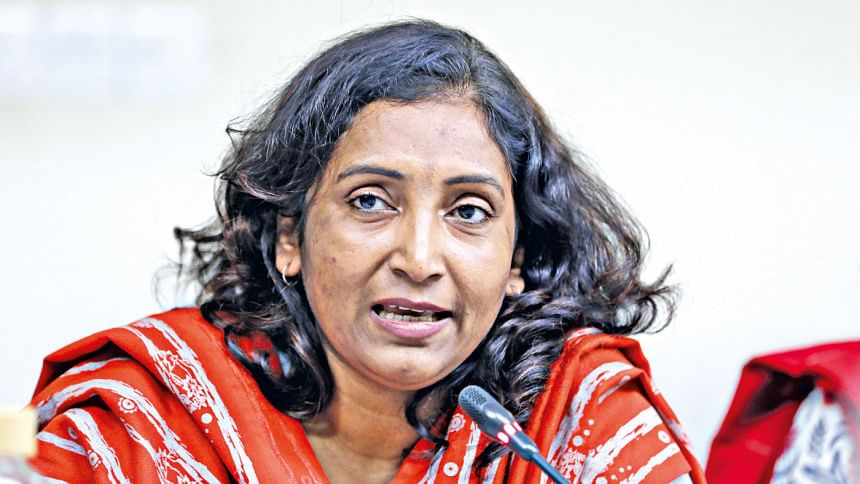
Mousumi Pervin, Senior Climate Change Officer, Asian Development Bank
Advancing SMEs requires a focus on four critical areas.
Firstly, strengthening value chains is essential. While women in remote areas produce high-quality green products, broken value chains and limited market access—exacerbated by poor communication infrastructure and social barriers—hinder their progress.
Secondly, access to advanced green technology is crucial. Many women still rely on traditional methods, but adopting modern sustainable technologies could significantly enhance productivity and expand market reach.
Thirdly, capacity building must be prioritised. Women often struggle with bureaucratic processes and complex documentation. Comprehensive training can empower them to navigate these challenges confidently.
Lastly, creating networking opportunities is vital. Many women lack knowledge about where to sell their products. Connecting them to urban markets, such as green product outlets in Dhaka, can enhance their visibility and profitability.
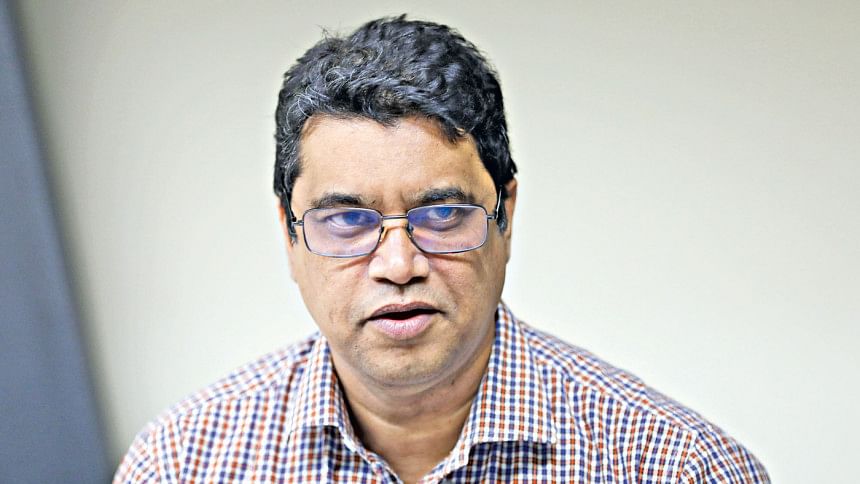
Nazim Hossain Sattar, General Manager, SME Foundation
In recent years, green compliance and climate resilience have gained significant traction within Bangladesh's SME sector. As the leading SME development agency, the SME Foundation actively supports women entrepreneurs, who frequently employ other women, thereby fostering wider female workforce participation.
Recognising the impact of climate challenges, the foundation has introduced tailored packages for climate-vulnerable and green-focused women entrepreneurs. However, a significant gap remains in awareness, particularly among rural women-led SMEs. To address this, the foundation is organising workshops, video campaigns, and roadshows, while also establishing model green SMEs in regions such as Khulna, Cox's Bazar, and Rangpur to inspire others.
The foundation is also developing green compliance guidelines and a platform to connect existing green SMEs with aspirants for collaboration and knowledge-sharing. It has initiated referral and consultation reporting to bridge rural-urban gaps, with results from ongoing applications expected soon. Lastly, fostering green finance will require collective stakeholder efforts, with a focus on promoting "associations" over cooperatives for securing loans.
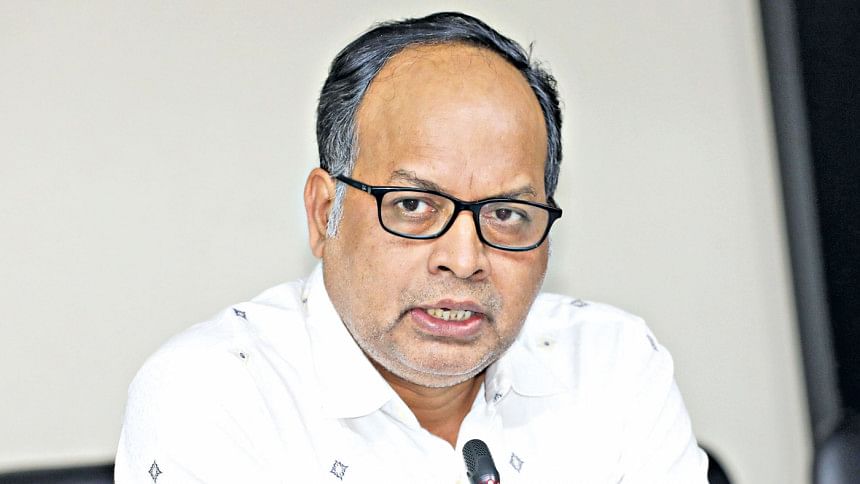
M Zakir Hossain Khan, Chief Executive, Change Initiative
The green microfinancing and microcredit initiative targeting vulnerable women is more than a transformative programme—it is a tool for empowerment. Women impacted by natural or man-made disasters, often trapped in cycles of debt, will benefit significantly from this initiative.
We also need to prioritise the adoption of innovative technologies, such as apps to streamline supply chains, and alternative energy solutions like rooftop solar systems.
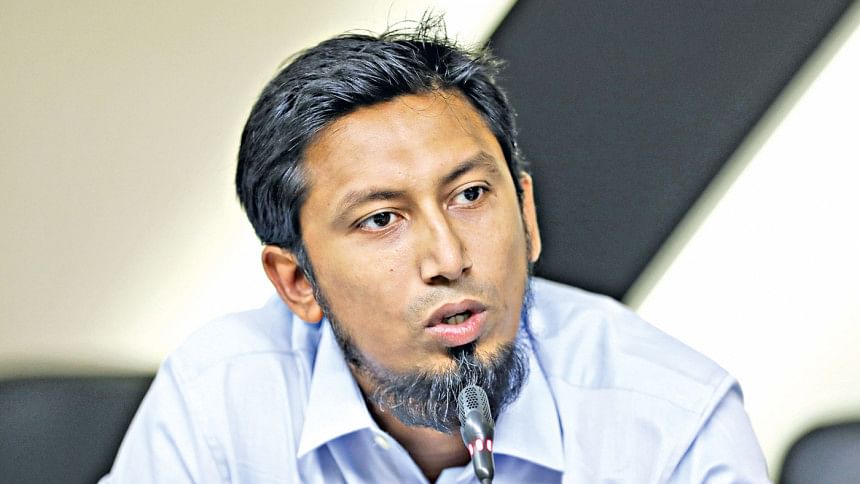
Md. Ruhul Amin, Chief Executive Officer, Countree Agro
Our work in agribusiness engages producers from char regions and climate-affected coastal areas. Projects are being implemented across six upazilas in three districts, focusing on promoting green products and creating a rural-urban continuum.
We encourage supermarkets and food processing companies to actively address the needs of climate-vulnerable areas. Beyond traditional gender distinctions, we aim to foster a more structured and inclusive development model within SMEs.
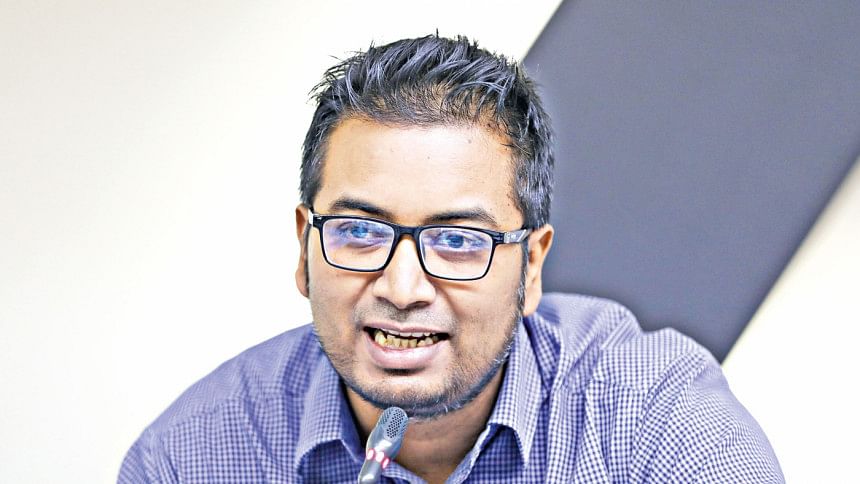
Syed Muntasir Ridwan, Co-Executive Director, Bangladesh Youth Environmental Initiative (BYEI)
While discussing green initiatives, it is vital to consider ecological factors. For instance, coconuts, which grow naturally in certain regions, are inherently climate-resilient. Establishing a corresponding value chain can enhance climate resilience and efficiency.
Youth can contribute by participating in cooperative networks that drive positive change. For primary producers, the existing market structure often complicates pricing negotiations. Organised supply chains, buyer identification, and buy-back guarantees are essential to overcome these challenges.
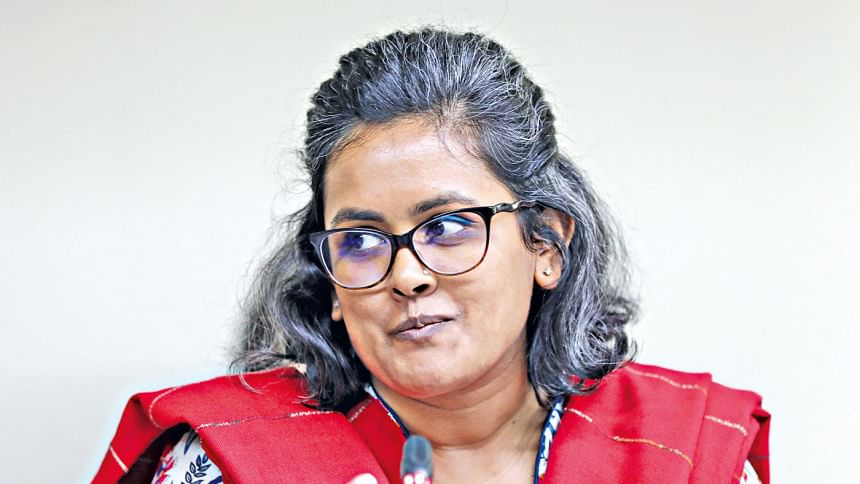
Dr. Maliha Muzammil, Climate Change Specialist, Resilience and Inclusive Growth (RIG) Cluster, UNDP Bangladesh
Three years ago, a study conducted with Kingston University London and IID Dhaka revealed that single-women-headed households in vulnerable areas bear three times the expenses of double-income households. This finding highlights how empowering women can directly benefit families and underscores the urgent need to prioritise innovative private financing solutions.
Currently, UNDP Bangladesh is collaborating with the SME Foundation, Bangladesh Bank, and BSEC to identify financing bottlenecks for climate-resilient cooperatives and develop a blended finance facility for green SMEs in vulnerable areas.
In collaboration with Bangladesh Bank, we are utilising LoGIC's climate vulnerability index (CVI) to rank unions across the country. Bangladesh Bank is also assisting in the development of a climate damage function, which will be based on micro-level data from this CVI. This function will help quantify the social and financial impacts of the climate crisis.
Strengthening linkages from local to national levels is crucial for effective impact monitoring, expanding private sector financing, and ensuring thematic bond proceeds reach the most vulnerable.
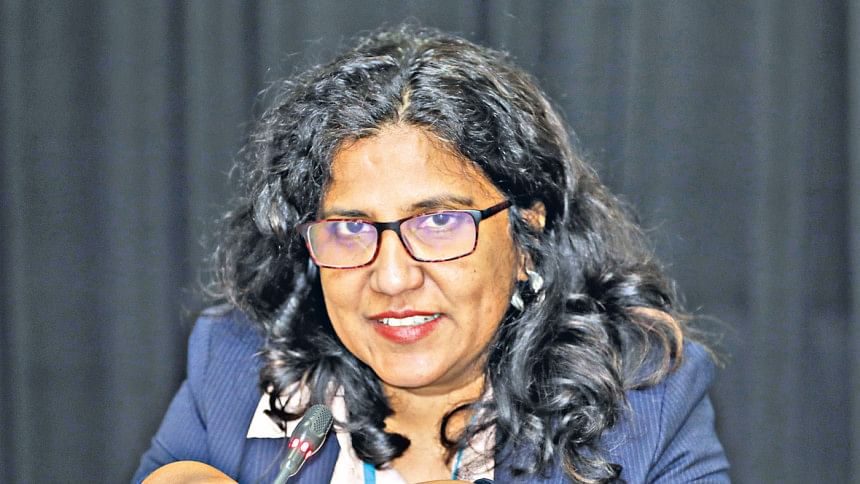
Sonali Dayaratne, Deputy Resident Representative, UNDP Bangladesh
Having spent 15 months in Bangladesh, I am deeply inspired by the resilience and creativity of its people. Grassroots implementation has been both humbling and enlightening. Despite enduring over five disasters this year, which affected 18 million people, Bangladesh remains a global leader in climate resilience. Efforts in agriculture and vulnerable communities deserve global recognition for driving meaningful change.
UNDP, in partnership with Bangladesh Bank, the SME Foundation, and development agencies from Sweden and Denmark, is focused on scaling initiatives for wider impact. While pilot projects offer valuable insights, the true challenge lies in replicating transformational change across communities. To achieve this, financing and governance models must shift towards people-centred solutions, emphasising demand-driven approaches over supply-driven ones.
Inclusion is crucial, especially for women-headed households and youth networks. Achieving sustainability in financing, service delivery, and market alignment is vital for success. To scale up initiatives like LoGIC and ensure long-term impact, collaborative efforts, innovative financing models, and public-private partnerships are essential.
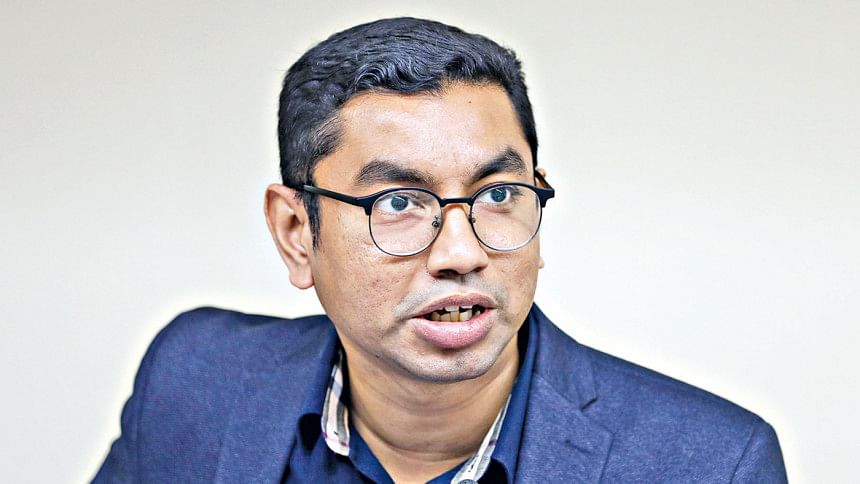
Tanjim Ferdous, In-Charge, NGOs & Foreign Missions, Business Development Section, The Daily Star
The Local Government Initiative on Climate Change (LoGIC) project has demonstrated the potential of community-owned green enterprises to drive localised solutions. However, critical gaps remain in defining these enterprises, establishing supportive policies, and ensuring sustainable financing mechanisms.
Recommendations
- Encourage the adoption of cooperatives as an effective model to empower vulnerable communities, strengthen climate resilience, and enable women to lead adaptive green business initiatives.
- Select climate-resilient, smart enterprises with short production cycles that utilise local raw materials and cater to strong local demand.
- Introduce insurance schemes tailored for climate-vulnerable cooperative members, particularly women.
- Encourage youth participation in cooperatives to build capacity and strengthen market connections.
- Strengthen market linkages by establishing connections between cooperatives and Upazila-level associations.
- Facilitate networking opportunities for women entrepreneurs by connecting them to urban markets, while promoting a gender-neutral market system to ensure equal access and opportunities for their success.
- Prioritise collaborative efforts, innovative financing, and public-private partnerships to scale up programmes like LoGIC.
- Establish organised supply chains, identify reliable buyers, and implement buy-back guarantees to support SMEs.
- Promote innovative technologies and alternative energy solutions to streamline supply chains and ensure uninterrupted production.

 For all latest news, follow The Daily Star's Google News channel.
For all latest news, follow The Daily Star's Google News channel. 



Comments